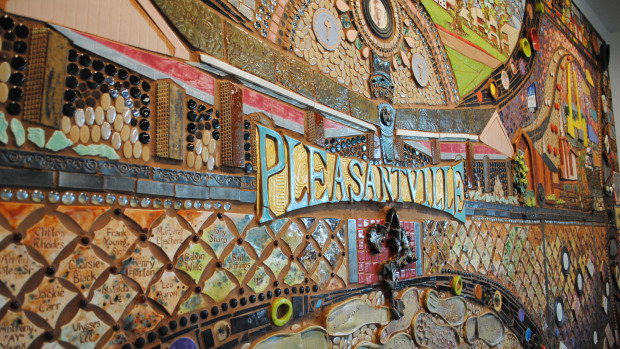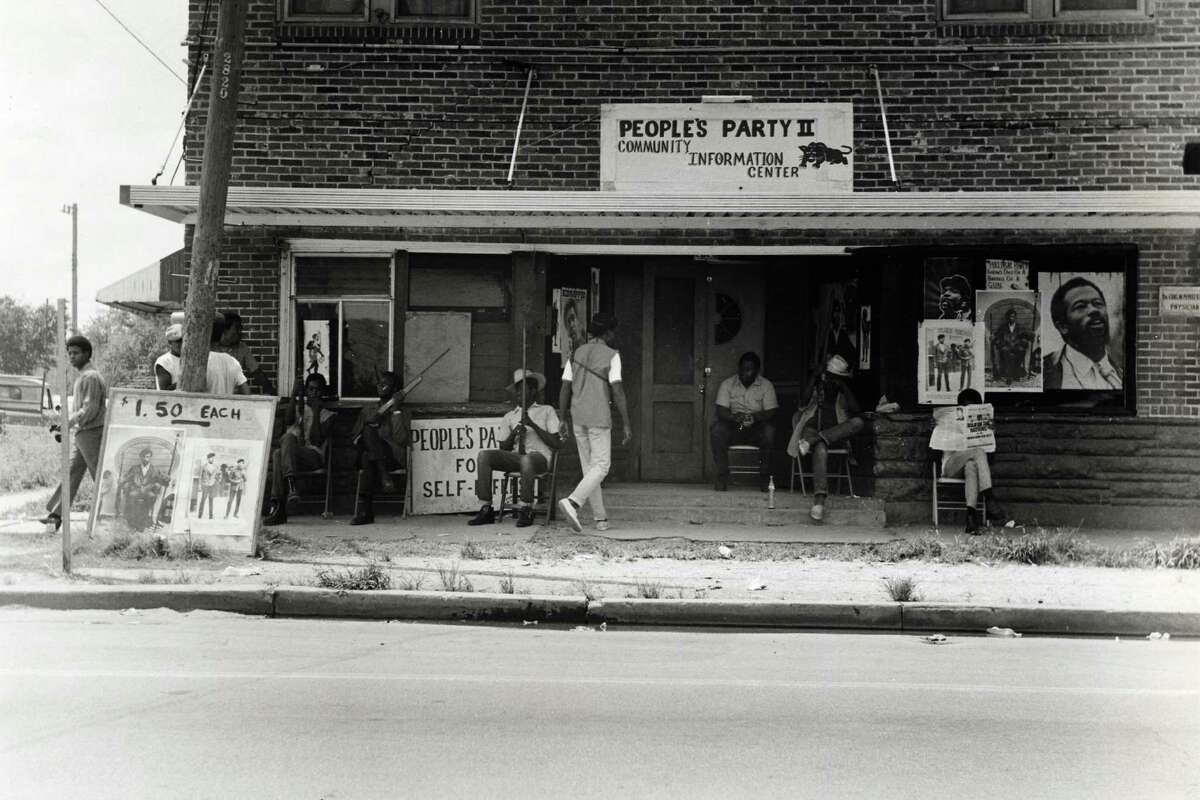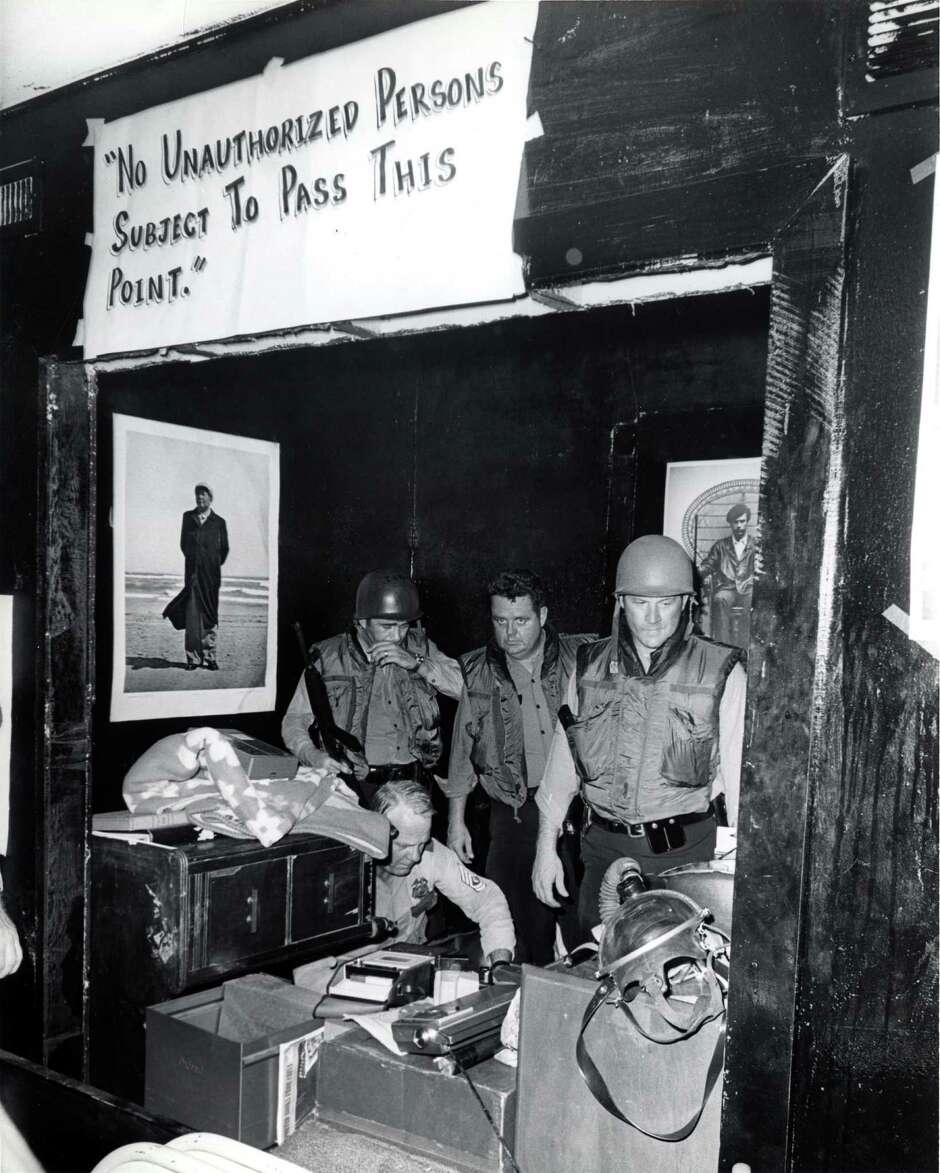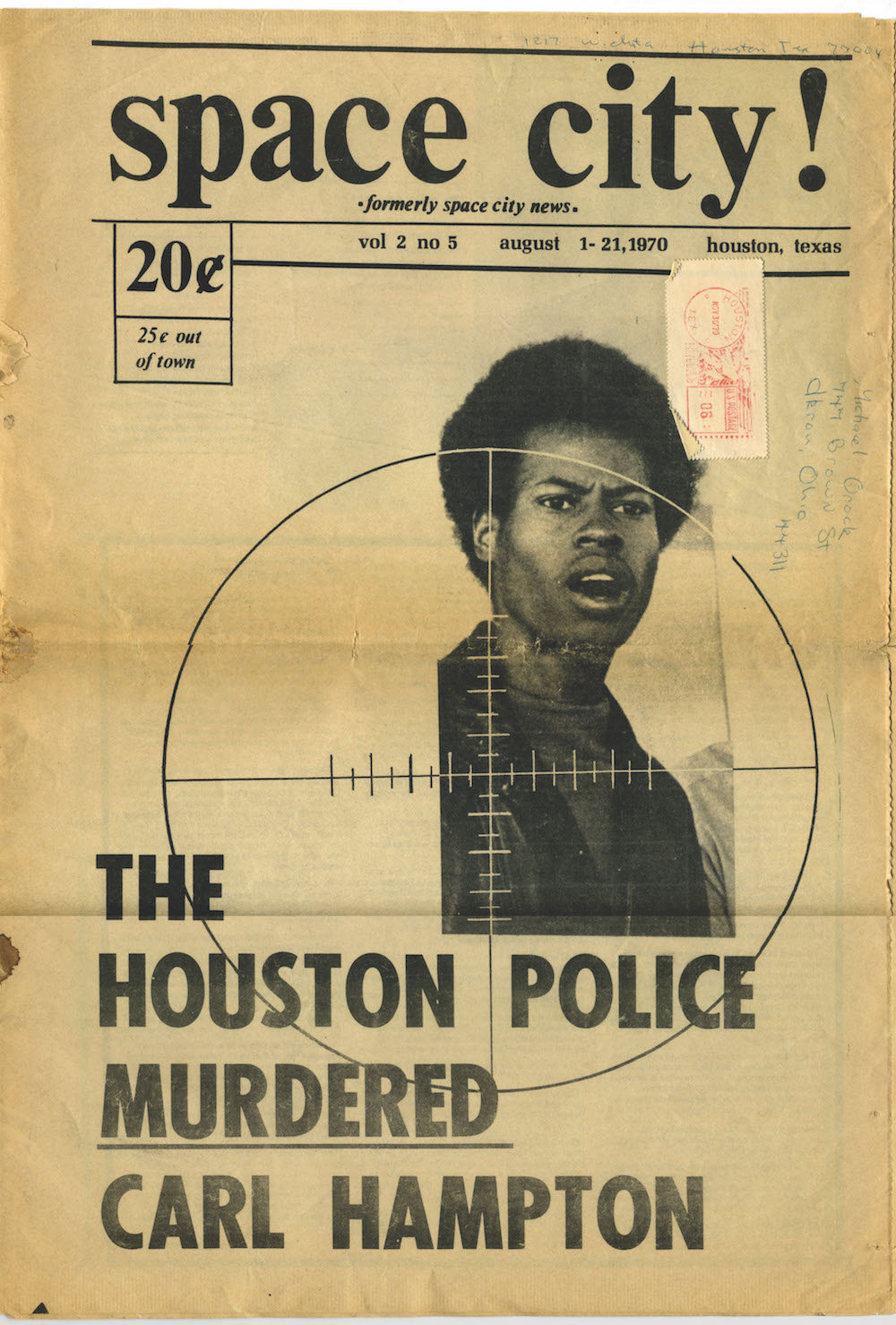Repost from black history month post in the Houston forum.
Carl Hampton and the People's Party II really had a stand off with HPD, had them shook, made them back down, and actually took over and occupied whole blocks in 3rd ward in 1970 for over 10 days before he was assassinated, in what was probably the most significant event of the black power era in Texas.
Carl Hampton was born and raised on the east side of Houston in the Pleasantville neighborhood.

Carl would eventually leave at 16 with his family to live in Oakland CA where he would become an active member in the Black Panther Party.
Carl wanted to start a local chapter of the BPP in Houston, but the BPP weren't accepting new chapters at the moment so Carl went back home and started a group he called the People's Party II, because he saw the Black Panther Party as the first people's party. And he set up Dowling st(now emancipation blvd) as it's headquarters.

The PPII like the BPP set up free breakfast program for children, but also set up a free pest control program for the residents of third ward, free transportation for the elderly to doctors appointments and to grocery stores.

The PPII were also staunch advocates of armed resistance and guerilla warfare tactics. Carl himself was a Maoist and pro-Vietcong revolutionary.

Demands made by the PPII of the government included black juries and judges for black people charged with crimes, freedom for all black people in jail, descent housing & jobs for black people, exemptions for black people from military service, as well as reparations for past transgressions on African-Americans.
One day when Carl was returning from a trip he spotted two police officers harassing a young PPII member for passing out Black Panther newspapers, and he confronted the officers with his gun. The officer questioned why Carl had his gun, to which Carl responded that it was his constitutional right, and he owed no further explanation. The officer then reached to draw his gun, but Carl beat him to the punch and drew his gun, and they were at a standoff. The officer in the squad car then called for back up. Carl and other members of the PPII would retreat and barricade themselves inside the office.

Police back up in riot gear would eventually arrive and they sent a negotiator inside to persuade Carl to give himself up for arrest. Carl refused and later after hours members of the Third ward and surrounding black neighborhoods in Houston would flood the street with their arms to protect Carl from the Police. The Police not knowing how to handle the situation would retreat. Many in the black community were emboldened by this victory against the HPD.
Many more black people around the city would poor into to Dowling st to offer support many armed, many there to prepare food for the revolutionaries. One activist from the community even went into front of the Houston city council to boastfully declare that the PPII and supporters as "secured" the neighborhood and any cop found venturing their would be shot, and he requested that no cop go there. Carl even did an interview with the local news station during the occupation.
The city didn't take kindly to the threats, and had been planning with the Houston Central Intelligence Division a military style assault on Carl and the PPII headquarters in 3rd ward.
Carl Hampton and the People's Party II really had a stand off with HPD, had them shook, made them back down, and actually took over and occupied whole blocks in 3rd ward in 1970 for over 10 days before he was assassinated, in what was probably the most significant event of the black power era in Texas.
Carl Hampton was born and raised on the east side of Houston in the Pleasantville neighborhood.

Carl would eventually leave at 16 with his family to live in Oakland CA where he would become an active member in the Black Panther Party.
Forgotten Houston July 1970: HPD vs. the Black PanthersBy the time Carl Hampton came to Houston in 1969, the distrust between the community and the police had reached a fever pitch. Hampton, who had grown up in Pleasantville before moving to California in his teens, considered himself an urban guerilla fighter and was determined to set up a chapter of the Black Panther Party in Houston.
Carl wanted to start a local chapter of the BPP in Houston, but the BPP weren't accepting new chapters at the moment so Carl went back home and started a group he called the People's Party II, because he saw the Black Panther Party as the first people's party. And he set up Dowling st(now emancipation blvd) as it's headquarters.
Carl Hampton honored on 45th anniversary of assassinationHampton had gone to Oakland in the late 1960s to work with the Black Panther Party and returned to Houston hoping to open a chapter. The national headquarters was not authorizing chapters at that time, thus Hampton named the organization he began in Houston, Peoples Party II.

The PPII like the BPP set up free breakfast program for children, but also set up a free pest control program for the residents of third ward, free transportation for the elderly to doctors appointments and to grocery stores.
Black Panthers honor their legacyIn Houston, the Black Panther Party succeeded in opening a free breakfast program for children, offering no-cost pest control in Third Ward and transporting seniors to grocery stores and doctor appointments.

The PPII were also staunch advocates of armed resistance and guerilla warfare tactics. Carl himself was a Maoist and pro-Vietcong revolutionary.
https://blog.chron.com/bayoucityhistory/2010/07/the-death-of-carl-hampton/A search of the headquarters uncovered literature on Mao Tse-tung, urban warfare and how to shoot down helicopters. Also found were several weapons, gas masks and tear gas.

Demands made by the PPII of the government included black juries and judges for black people charged with crimes, freedom for all black people in jail, descent housing & jobs for black people, exemptions for black people from military service, as well as reparations for past transgressions on African-Americans.
One day when Carl was returning from a trip he spotted two police officers harassing a young PPII member for passing out Black Panther newspapers, and he confronted the officers with his gun. The officer questioned why Carl had his gun, to which Carl responded that it was his constitutional right, and he owed no further explanation. The officer then reached to draw his gun, but Carl beat him to the punch and drew his gun, and they were at a standoff. The officer in the squad car then called for back up. Carl and other members of the PPII would retreat and barricade themselves inside the office.
The Police Assassination of Carl HamptonIt all began on a hot and humid summer afternoon, July 17, 1970. Carl would be returning from a trip home back to the Headquarters of People's Party II (PPII). Upon arriving and stepping out of the car, he noticed two uniform patrolmen harassing a young brother who had been selling the "Black Panther Newspaper" on the street curb in front of the Headquarters. He approached the officer and inquired about the nature of the problem. Carl was wearing an unconcealed .45 automatic pistol strapped across his chest in a shoulder holster (legal at that time). The police officer, startled at seeing a young Black man openly wearing a pistol, immediately withdrew his attention from the initial cause of being there. He then confronted Carl and questioned him as to why he was wearing a gun. Carl responded by telling him he had a constitutional right to bear arms. Again shocked and infuriated by this reply, the officer began reaching for his gun. Seeing this, Carl instinctively drew his gun from his holster, beating the police to the draw. At that same moment, two members in the community center emerged with weapons to join in the confrontation. The driver of the patrol car quickly radioed for back up.

Police back up in riot gear would eventually arrive and they sent a negotiator inside to persuade Carl to give himself up for arrest. Carl refused and later after hours members of the Third ward and surrounding black neighborhoods in Houston would flood the street with their arms to protect Carl from the Police. The Police not knowing how to handle the situation would retreat. Many in the black community were emboldened by this victory against the HPD.
Forgotten Houston July 1970: HPD vs. the Black PanthersBefore the cops could storm the People's Party II headquarters, hundreds of Third Ward residents, many of them armed, had surrounded the building — effectively creating a human shield for those inside.
HPD officers in riot gear arrived on the scene and began positioning themselves behind buildings and cars. In an attempt to defuse the situation, an HPD commanding officer entered the People's Party II headquarters to try to negotiate Hampton's surrender.
Remembering the alleged beating death of Conner, Hampton said that he had better chances on the streets with his lawyer negotiating his terms of surrender, according to Houston historian Charles "Boko" Freeman's telling of the events.
Seeing no hope of compromise, the HPD officer left the People's Party II headquarters. Not wanting to open fire on an entire neighborhood, HPD backed down without arresting Hampton or any members of the People's Party II. The police department's decision not to try to arrest Hampton only emboldened the party members.
Many more black people around the city would poor into to Dowling st to offer support many armed, many there to prepare food for the revolutionaries. One activist from the community even went into front of the Houston city council to boastfully declare that the PPII and supporters as "secured" the neighborhood and any cop found venturing their would be shot, and he requested that no cop go there. Carl even did an interview with the local news station during the occupation.
The city didn't take kindly to the threats, and had been planning with the Houston Central Intelligence Division a military style assault on Carl and the PPII headquarters in 3rd ward.
Forgotten Houston July 1970: HPD vs. the Black PanthersNot wanting to open fire on an entire neighborhood, HPD backed down without arresting Hampton or any members of the People's Party II. The police department's decision not to try to arrest Hampton only emboldened the party members.
"On several evenings after that armed party members and their sympathizers paraded in Dowling Street, sometimes stopping traffic and asking for donations to their cause," according to a July 28, 1970 Houston Post editorial. The party members seemed to become bolder with each passing day, and neighborhood residents and those involved in revolutionary politics could see that a showdown was coming
Ovide Duncantell, a black activist unaffiliated with the People's Party II, appeared at a Houston City Council meeting to warn HPD to stay away from the party headquarters.
"The law will be enforced in the 2800 block of Dowling as it is everywhere. There is no place in this city where a policeman can't go," HPD chief Herman Short responded, according to the Houston Chronicle.




 Emancipation(formerly Dowling st) painting.
Emancipation(formerly Dowling st) painting.